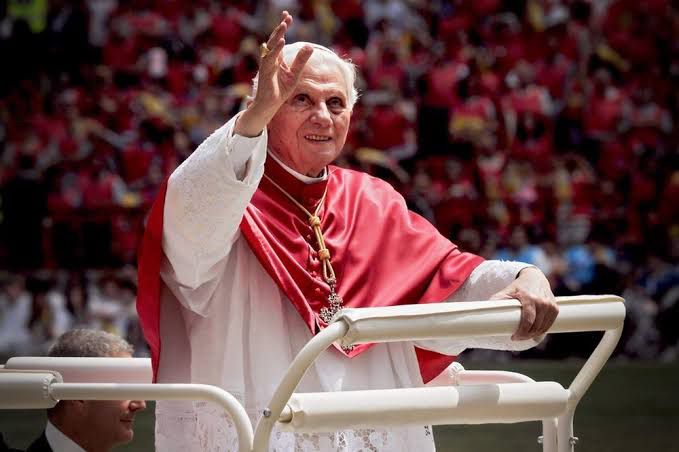Pope Benedict XVI Death & Obituary: Pope Benedict XVI, one of the most influential figures in the Catholic Church, passed away on December 31, 2022, at the age of 95. His death was attributed to cardiogenic shock, a complication of acute respiratory failure caused by interstitial lung disease. Though his passing was not unexpected due to his advanced age, it raises important questions about how institutions, including the Vatican, address aging and longevity in today’s world, where science is rethinking the biological process of growing old.
The Institutional Blindspot on Aging: A Traditional View
The Vatican’s acknowledgment of Pope Benedict XVI’s decline due to natural aging reinforces a traditional view of aging, one that sees it as an inevitable process that cannot be mitigated. In a world where medical and technological advancements are redefining aging, this perspective seems outdated. Pope Benedict XVI’s death offers a chance to reassess how institutions, particularly religious and political ones, approach the issue of longevity.
Scientific Advancements in Longevity: Rethinking Aging as a Disease
Recent breakthroughs in fields like epigenetic reprogramming, senolytics, NAD+ boosters, and AI-driven biomarker analysis suggest that aging is not an unavoidable fate. Rather, it can be slowed, and potentially reversed. These advancements offer promising ways to manage aging at a cellular level and could have made a significant impact on Pope Benedict XVI’s quality of life, potentially extending his years. For institutions like the Vatican, adopting longevity science could be transformative.
The Global Challenge: Institutional Inaction on Aging
Pope Benedict XVI’s passing is not only a loss for the Catholic Church but also a reflection of a broader issue faced by institutions worldwide—how to adapt to the aging of their leadership and constituents. Governments, corporations, universities, and other organizations must face the ethical and strategic challenge of how they view and respond to aging. Will they continue to treat aging as an irreversible decline or invest in preventive measures at the cellular level? The current approach often emphasizes reactive care after age-related diseases occur. Proactive measures like those offered by companies such as TruDiagnostics provide a compelling alternative.
The Ethics and Economics of Longevity: A Strategic Imperative
Longevity science is not just a futuristic dream; it is an ethical, economic, and strategic imperative for modern institutions. Failing to invest in this field is not only a missed opportunity to enhance individual lives but also a risk to the vitality and sustainability of organizations and societies. The question is no longer whether we can extend life, but whether we have the foresight and courage to make it happen.
Conclusion: A Call to Action for a Healthier Future
Pope Benedict XVI’s legacy will always be remembered for his profound intellectual contributions, spiritual leadership, and unwavering faith. His passing serves as a reminder for institutions across the world to act now and embrace the science of longevity. By doing so, they can ensure future generations live longer, healthier, and more fulfilling lives. This is a crucial moment to honor his legacy by advocating for proactive longevity policies that can benefit individuals and society at large.
Rest in peace, Pope Benedict XVI. Your life and your legacy will continue to inspire us to build a brighter, healthier future.

